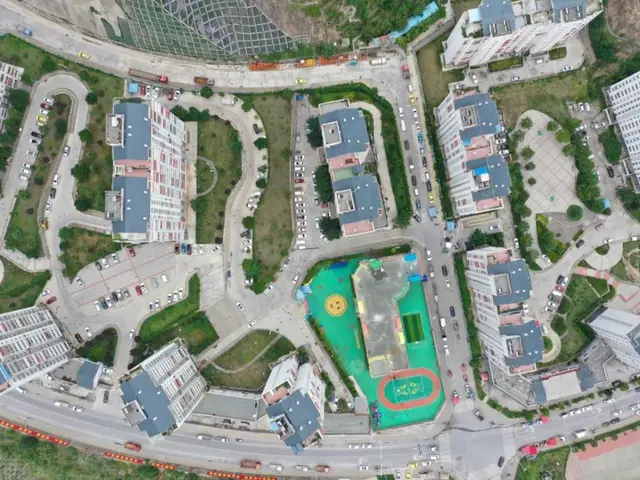Xue Yuying got up early, carried two buckets and walked to Sanyan Valley to fetch spring water. Not far from the valley is the spot where his house once sat, which was swept away in a destructive mudslide 10 years ago.
Locals drink the spring water and use it for cooking, Xue said. The water tastes just as sweet and cool as it used to be when the 63-year-old was little.
A roaring avalanche of mud and debris devastated Zhouqu County in northwest China's Gansu Province on Aug. 8, 2010. The raging mudslide dashed down the valley slopes and swallowed up buildings and farmland in Yueyuan Village almost overnight.
Xue is a resident of the village. He lost three family members in the disaster, hanging on together with his eldest son, homeless.
"The mudslide ruined everything. There was no house, no family and no hope," Xue recalled the first hard days after the disaster.
Being the only survivors of the family, Xue Yuying and his son Xue Xinrong decided to make a living near the village.
With an interest-free government loan of 30,000 yuan (about 4,305 U.S. dollars), the father and son opened a small restaurant in 2011, striving for a better life. Xue Xinrong got married, and had two adorable daughters.
The newcomers to the family delighted Xue Yuying. "My granddaughters mean a lot to me. I have been taking care of them since they were born," he said.
As the family grew bigger, so did their catering business. Xue Xinrong signed a contract to supply a local hotel, and earns nearly 120,000 yuan a year.
Though having started his own family, Xue Xinrong persuaded his father to live with them. "Since the horrible disaster, we cherish and depend on each other more than before," said the son.
Their new apartment is located in Luojiayu Community, not far from the former site of Yueyuan Village. More than 40 other surviving families of the village also live here.
"Our village is gone for good, but we are still neighbors and live close to each other," Xue Yuying said.
After the disaster, a total of 5.3 billion yuan has been earmarked to Zhouqu for 186 reconstruction projects by the Chinese central government.
Xue Yuying has got used to taking a pause and casting a glance at the other side of the valley on his way back home from the spring. "My house used to be there. I was born in that house and lived there most of my life."
After he woke up his two granddaughters, made them breakfast and sent them to school, Xue went to visit his old neighbor Li Haiyun. The 54-year-old now lives alone.
Li used to be a cook and was quite popular in Yueyuan Village. "Whenever there were weddings or funerals held in the village, Li would be hired to cook the banquets," Xue recalled.
In the mudslide, Li lost his wife and son, his job, as well as his farmland and house. "I was completely down-and-out at that time. I didn't even have a change of clothes," he said.
To help farmers like Li earn a living, the county government provided job training programs, including car maintenance, housekeeping and electric welding for the survivors, since most of them were not willing to leave their hometown.
After attending a training course, Li found gigs at construction sites near the county, earning some 3,000 yuan a month. He moved into his new apartment in 2013 and spent heavily on its decoration, making up his mind to move on.
"Life goes on and it seems to get better," Li said. In his apartment, every piece of furniture is carefully wiped clean. He likes growing flowers and is known for his green thumb.
In Chinese, "Yueyuan" means "full moon," which symbolizes completeness and reunion.
"After a decade of struggling, we are trying to let go of the past and start a new life," said Xue Yuying. "After all, the moon will turn full one day."
(CHINA.ORG.CN)
 简体中文
简体中文

